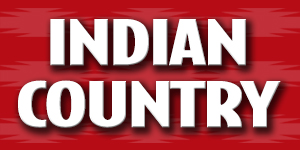Sonya Begay addresses grandparents fulfilling guardian roles at elder abuse prevention conference

Sonya Begay, policy analyst with the ACL Office of American Indians on Aging,
speaks at the Taking a Stand Against Elder Abuse Conference on May 11.
By LORI ANN EDMO
Sho-Ban News
FORT HALL — Sonya Begay addressed the issue of grandparents raising grandchildren at the Eleventh Annual Taking a Stand Against Elder Abuse conference May 11.
She is a policy analyst with the ACL Office of American Indians on Aging in Washington D.C. She talked about her own experience of having to raise her grandchildren after her son was murdered as he was a father of three. She was living in a one bedroom apartment but had to move to a larger one as a requirement to be a guardian.
She gave a PowerPoint presentation and shared a slide that read the current aggregate of grandparents taking care of grandchildren is 29.9% and 10.6% said they are a primary caregiver of grandchildren. In the State of Idaho, 35.4% take care of their grandchildren and 16.7% are primary caregivers of grandchildren.
A slide regarding elder grandparent caregiving of aggregate: 19,301 and among them 10.6% of Native elders were primary caregivers.
Of the Native elders 74.5% resided on a reservation; 74.8% lived in a single family residence; 74.6% were females; 52.8% were between the ages of 60 to 69, 25.5% were between 70 to 79 years, 15.2% were 55 to 59 and 6.5% were 80 or older. A total of 43.6% were married or living with a partner; 42.2% were not employed; 29.9% worked full-time, 18.5% were retired and 9.4% worked part-time.; 13.8% had an income of less than $4,999, 13.7% had an income of $35,000 to $49,999.
Concerning the health of grandparents – 81.2% had their last checkup within the past year; 77.6% had between one and four chronic conditions; 49.6% had a good nutritional status; 51.7% were obese; 30.9% were overweight; 48.4% said that it had been more than three years since their last alcoholic drink and 25.1% smoked cigarettes.
Most grandparents reported having good (40%) or fair (28.2%) health. High blood pressure (54.4%) and arthritis (45.3%) were the most commonly reported health conditions.
Concerning grandparent’s households basic necessities include child care (babies, toddlers, after daycare), transportation, housing, food, personal items (diapers, hairbrushes, toothbrushes, etc.) Children who have disabilities will need equipment and or immediate assistance for the best interest of children. Additional costs include: Internet, cell phones, computers/tablets, etc. School activities such as athletics, field trips, etc.
A participant from Lapwai said when she worked as an advocate for tribal elders she developed an elder resource book with services provided on the reservation.
Regarding what constitutes abuse and neglect among elders and grandparents – abuse can be physical, emotional, blackmailing or intimidation. Neglect is failing to take care of an elder, not giving them their medicine, protecting them from danger, not providing food or water and not taking care of their hygiene if they are unable to do so themselves.
Marcia Hall, Shoshone-Bannock Tribes Adult Protection Services manager, said some of the issues she deals with locally is there may be an elder who is hospitalized but no family members are present to make decisions. In some instances, family members will get power of attorney over an elder’s finances then misspend the money so much of it is greed.
Lunita Ariwite said the Tribes have an Elder Abuse Code and Domestic Violence Code that can be utilized in abuse cases.
After Begay’s presentation, Hall presented her with a beaded medallion that featured the program’s logo “Little Irene.”





